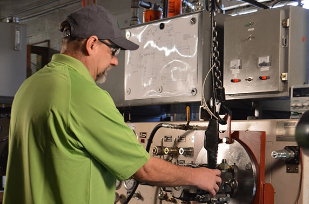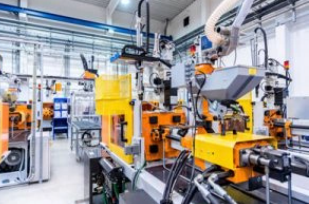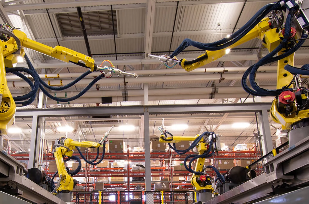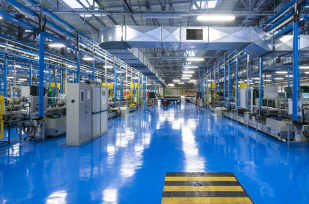At RG Group we sell automation and robotics, and in the back of my mind there’s a niggling little voice that whispers “but what about the jobs…? Have I become a “Robophobe?” So, to shut up that annoying little voice, I decided to do what I always do and research the subject. I needed to dispel some of my own fears about robots and the future of automation. So…
Are robots stealing all the good jobs?
Are manufacturers turning to robots because of the opioid crisis and the lack of sober employees?
Is The Singularity right around the corner?
How soon will robots be affordable enough that I can buy one to fold my laundry AND make me a new tin foil hat to keep her/him/it from reading my mind and stealing my passwords?
After some research, I was able to answer those questions (No. Not really. Probably. I really don’t want a household robot, it would terrify my cat, and probably my husband.) I also came up with at least a dozen more questions.
Some truths I discovered:
- Robots and automation in manufacturing are helping to save workers’ lives and limbs. Repetitive motion injuries are down and workers are able to avoid other safety hazards like toxic chemicals and fumes as well as extreme heat environments.
- Robots don’t do drugs. Or abuse alcohol. And apparently American workers do. Sadly, the opioid crisis is real and while most workers do not abuse drugs, the number who do has been rising. Some manufacturers are finding it harder to find job candidates that can pass their drug screening tests. With the legalization of marijuana in some areas, drug screening has become a murky subject in general.
- The American workforce is changing and evolving. There is currently a low unemployment rate. Baby Boomers are retiring in great numbers. The younger generation doesn’t want factory jobs. People want a better work/life balance. Young adults entering the workforce have never existed in a world without computer technology and worry less about being replaced by a robot. They expect to be working with one eventually.
- Robotics and automation will replace some jobs, but for most workers, those jobs are tiring, boring, hard and often dangerous. As a whole, studies have shown that American productivity levels have been steadily slowing. To compete on a global level, manufacturers have to take a hard look at the bottom line and invest in whatever fix will cut overall expenditures and increase output.
- Historically, automation and modernization has boosted productivity, which improved consumer wealth and spending, which ultimately created new, higher-paying jobs. Just think about the history of the motorcar… yes, saddle-makers and carriage builders were devastated, but a whole new industry was born. New jobs were created in steel, glass, rubber, gas and oil… not to mention the trucking industry.
- Jobs in the trucking industry may one day be obsolete with the advent of the self-driving truck. But, according to the Bureau of Labor Statistics, truck drivers, particularly long-haul truckers, face workplace fatal-injury rates 7 times higher than the overall workplace average.
Instead of the definitive answers, I was ultimately looking for, what I’ve discovered is that nobody really knows how the future of robotics and automation will work out for society as a whole. Some jobs will be lost, but new jobs will be created. The idea of self-driving cars and trucks kind of creeps me out, but the potential for significantly safer roadways excites me. At one time I really hated to see cashiers replaced by self-checkout machines, but after one too many instances of broken eggs and gallons of milk bagged on top of bread, I got over it.
Drastic changes are NOT going to happen overnight. It will take decades to introduce automation and robotics to some industries. Robots should be seen as a tool in the manufacturing process, the same way they are thought of in the military and medical fields, expanding our capabilities and allowing us to achieve things that were previously impossible because of human frailty. Lastly, I found out that knowledge is key, change, as always, is inevitable, and I am NOT a robophobe.
If you have some insights into the future of automation and robotics, or know where I can get a house robot that will not terrify my scaredy cat, contact me at aliceann.strausbaugh@rg-group.com





